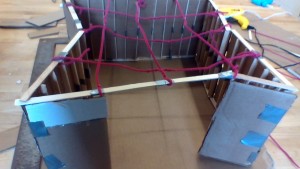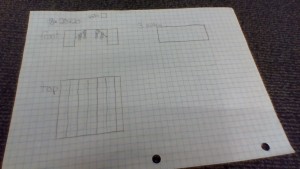Even though almost no one grows all of their food anymore, that doesn’t mean we can’t give food. Sure, nowadays it would be a little weird for some random homeless guy to enter your house and take your food that doesn’t mean we can’t follow the message. We should still be giving food to those who need it, regardless of storebought or grown. In Deuteronomy 15:11 God says, “For there will never cease to be needy ones in your land; therefore I command you: open your hand to the poor and needy kin in your land. ” We still have to open our hearts and give in whatever way we can.
In the Torah, God has mentioned different categories of people that may need our attention. While some of those categories might have changed because no one cares if you are a Levite anymore, that doesn’t mean there aren’t people that need special care. In our society right now, we should take care to the homeless, the sick, the sexually assaulted, and so much more. The homeless because they don’t have a roof over their head when nights get cold or wet. The sick because the human life takes priority over all else. The sexually assaulted because no one should have their body abused. And that’s not it. The drunkards who need help even if they don’t realize it. Those who face discrimination. The list never stops.
On a happier note, the conflicting views in Deuteronomy 15:4 and 15:11 are actually quite hilarious. At first God is like, “Let’s work our hardest and everyone will be happy. Butterflies and gumdrops all around.” And then a little bit later God looked around and realized, “Oh this is a lost cause. The impoverished just keep coming.” And while the Torah has it in different wording, that’s virtually what happened. Now that doesn’t mean we shouldn’t help the needy, we should always help the needy, but that’s not the main point here. That message doesn’t conflict. What’s really worth investigating here is God changing his mind after 7 verses.
When giving to others, the priority shouldn’t be our personal financial loss. It’s not about us for one second here. And if you lose that much, then maybe you should think about what you give. But if you just care about every single penny then think about it like this; What ever you lose physically, you get spiritually. If you donate a lot, your heart will be full. But if you don’t give anything you will never experience true happiness.


 So here is our Sukkah plans. The camera is backwards, but each graph paper square represents 2ft. The total dimensions will be 8x20x20. The base will be 20×20 and the height is 8ft. The front will have a panel on each side that is 4ft wide. The entryway is 12ft. Atop the entry way there is a plank of wood that is being supported by a support stick on either side. Maybe we could have the kindergartners make paper chains to hang on the support sticks. The other three sides are 8ft tall and have a width of 20ft. The top has support beams every three feet that would be beneficial to hang skach.
So here is our Sukkah plans. The camera is backwards, but each graph paper square represents 2ft. The total dimensions will be 8x20x20. The base will be 20×20 and the height is 8ft. The front will have a panel on each side that is 4ft wide. The entryway is 12ft. Atop the entry way there is a plank of wood that is being supported by a support stick on either side. Maybe we could have the kindergartners make paper chains to hang on the support sticks. The other three sides are 8ft tall and have a width of 20ft. The top has support beams every three feet that would be beneficial to hang skach.